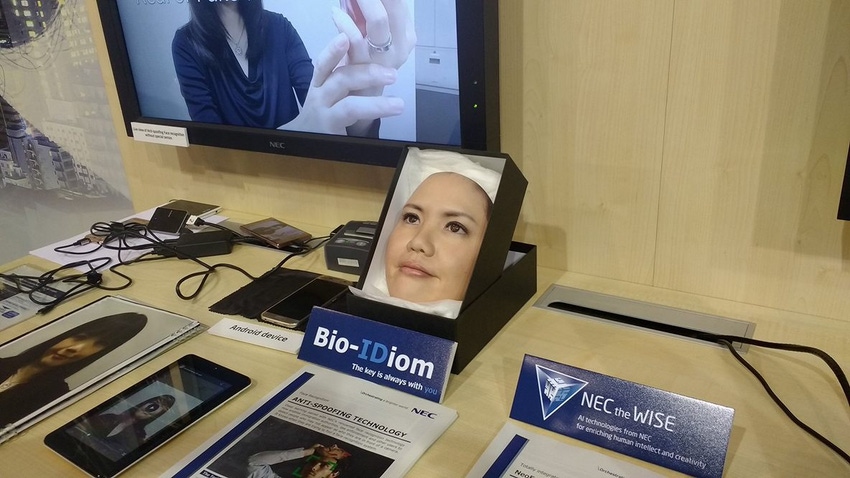Our lives are dominated by a tiny digital interface, but biometrics could offer future generations a more natural way to interact with the digital world.
February 28, 2018

Our lives are dominated by a tiny digital interface, but biometrics could offer future generations a more natural way to interact with the digital world.
Before hysteria develops it should be worth noting this piece is not predicting the death of the smartphone, but Shinya Kukita, Chief Engineer of the Global Business Unit at NEC pointed out it is not a very natural way for humans to communicate. You’re hunched over, prodding a tiny screen and sometimes squinting to pick out the details. We’ve gone from a very expressive, vocal being to one which is dominated by silent communication and limits. Of course there is some way to go, but the steps forward being made by biometric authentication mean the world could become a lot bigger.
“With so many displays on the street, based on location or biometric details public screens could become a personal display for that particular moment,” said Kukita. “Any screen could become personalised.”
The accuracy being shown by biometric authentication technologies is increasing quickly. At the NEC stand we saw a quick demonstration of its facial recognition tech and the software couldn’t be fooled by a picture of the individual or a video, and the software was even able to detect whether the individual was very an incredibly detailed mask. There are becoming fewer ways to ‘spoof’ the software according to NEC.
With the public display scenario, once there are sensors everywhere any individual could work up to a screen on the street and it would recognise that person. Maybe a two-part authentication would be needed to make 100% sure (choose from facial, voice, fingerprint, palm, iris, ear canal), but because all your data is stored in the cloud, this public display becomes your personal screen for the moment. It would not necessarily be the death of a smartphone, but it could decrease our reliance on it.
While it is feasible, there are more practical applications for the technology right now. Back when the Champions League took place in Cardiff in last year, the local police used NEC’s facial recognition software, known as Bio-IDium, to identify individuals who had been placed on a watch list. Perhaps these individuals were banned from the stadium, or they had been involved in a recent incident, but Kukita highlighted several arrests were made once they had been identified and the nearest officers informed.
This is a very specific usecase, and in many European countries only the police force have been enabled to use such technology, but there are wider applications. Display advertising on the street or screens in bus stops could be personalised to the individual who is standing in front of it. Using powerful AI technology, this advertising could go further, perhaps logging into your schedule and realising you need to be on the other side of town. All of a sudden the screen has ordered a taxi for you.
One of the big problems with these technologies is privacy. “There is a fine line to walk between privacy and security,” Kukita commented, and the rollout will have to be measured and conscious. The risky aspect of the facial recognition software is the fact it doesn’t have to be ‘opt-in’. With a finger print scanner you essentially give permission by offering your finger to the machine, but facial recognition can operate in the background without the knowledge of the user. It is a delicate balance to strike, hence why only police are legally allowed to use it right now. One major incident and public opinion could be influenced, setting AI progress back years.
There is a lot which needs to change in terms of regulation, a huge amount of progress to be made deploying sensors and a monstrous amount of public consultation which will need to take place before the world we have described is a reality, But, it isn’t really that far away.
About the Author(s)
You May Also Like








.png?width=300&auto=webp&quality=80&disable=upscale)


_1.jpg?width=300&auto=webp&quality=80&disable=upscale)


.png?width=800&auto=webp&quality=80&disable=upscale)